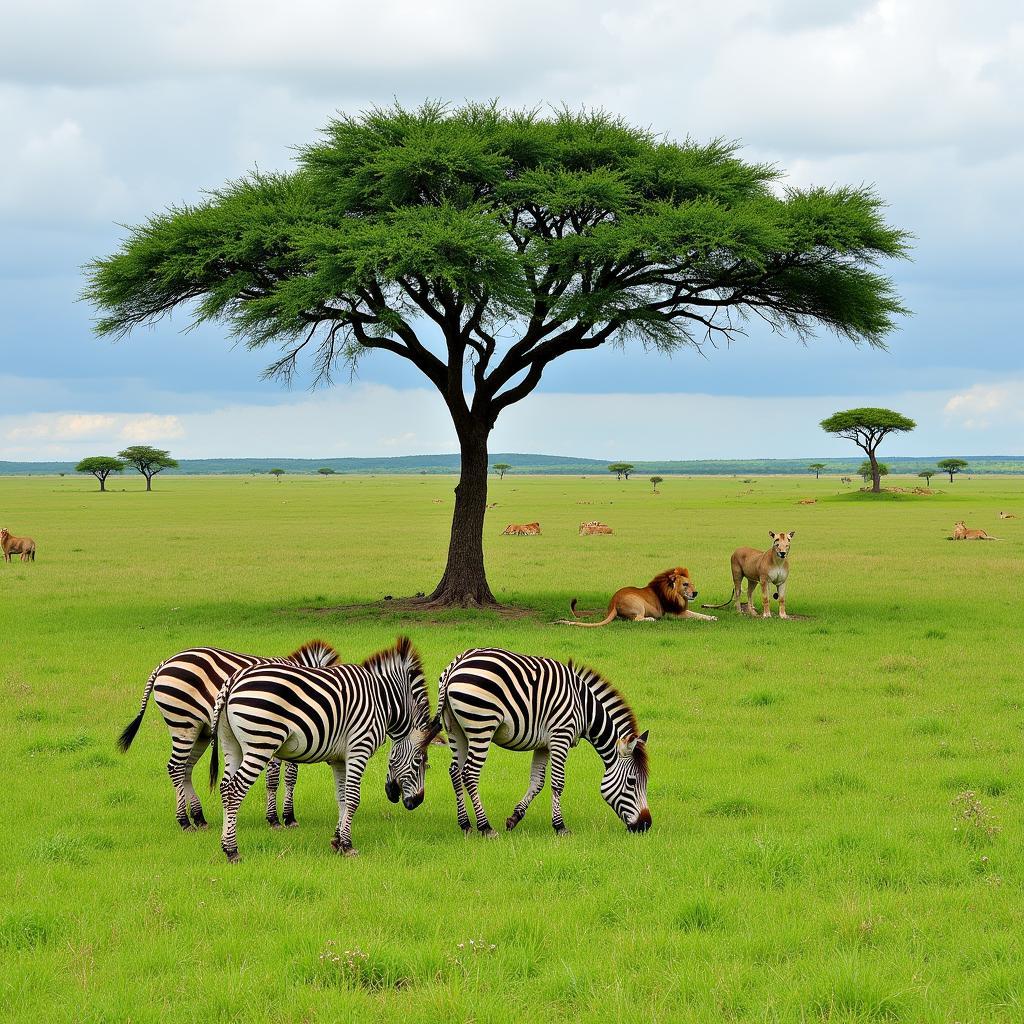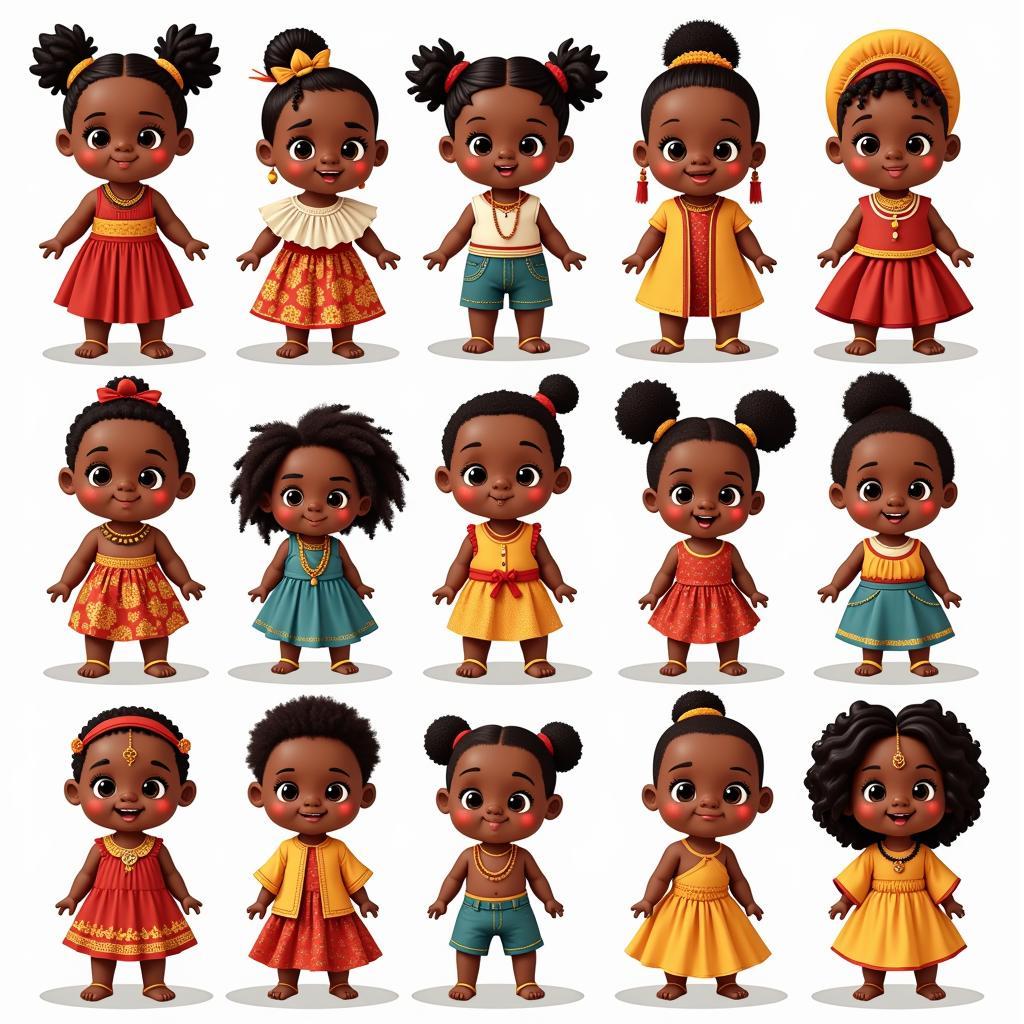Do African Ants Eat Babies?
The unsettling phrase “African Ants Eat Baby” often pops up in online searches, leading to a mix of curiosity and concern. While the internet can be a breeding ground for misinformation and sensationalism, it’s crucial to approach such topics with a healthy dose of skepticism and seek accurate information. In this article, we will delve into the world of African ants, exploring their behavior, diet, and any potential threat they might pose to humans.
Unpacking the Myth: Separating Fact from Fiction
The idea of ants, especially African ants, carrying away and consuming babies is a common trope in fictional narratives. While ants are incredibly strong for their size and some species are known for their aggressive foraging behavior, the idea that they would target human babies as a food source is a gross exaggeration.
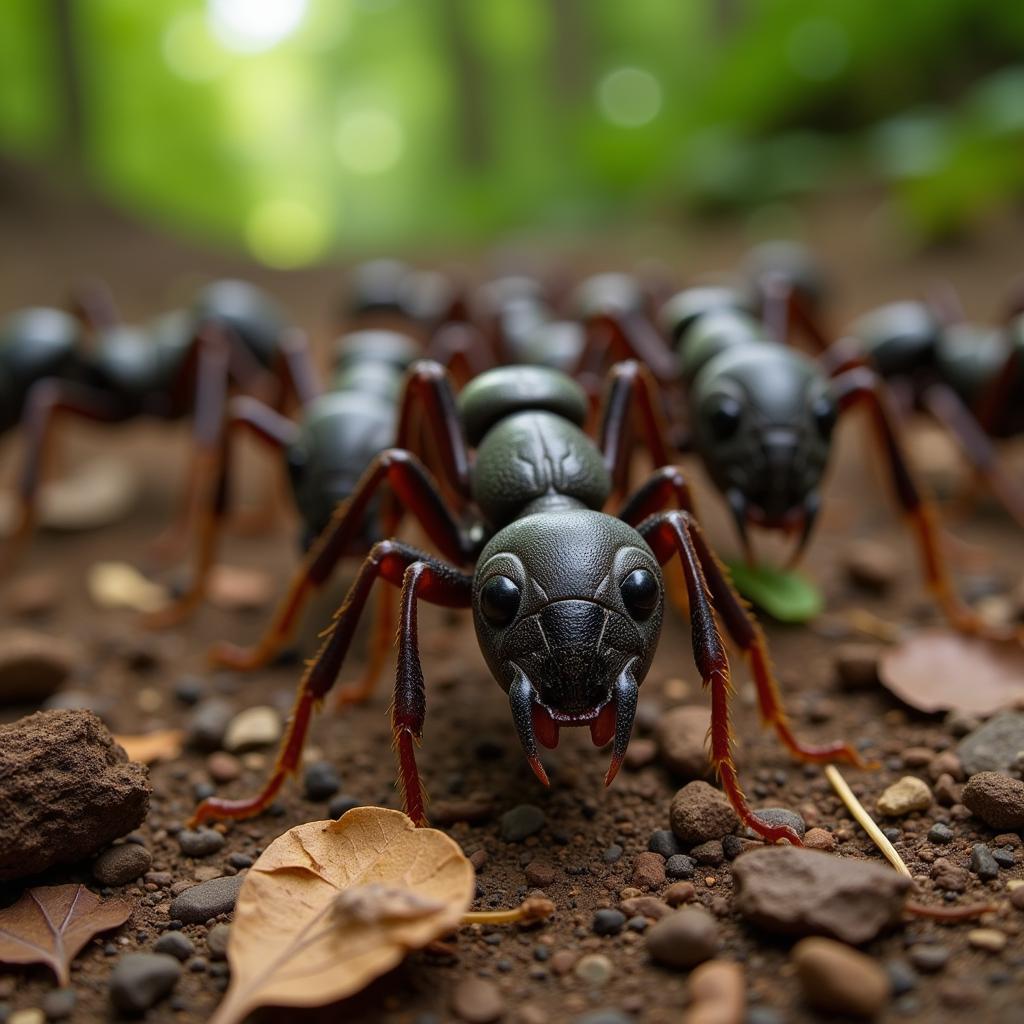 African Driver Ants on the Move
African Driver Ants on the Move
The Fascinating World of African Ants: Diversity and Behavior
Africa boasts an astounding diversity of ant species, each with its unique characteristics and ecological role. Among the most well-known are driver ants, infamous for their large colonies and predatory nature. However, it’s important to remember that their diet primarily consists of insects, other invertebrates, and occasionally small vertebrates – never human babies.
Driver Ants: The Apex Predators of the Ant World
Driver ants, also known as safari ants or army ants, are undoubtedly impressive creatures. Their massive, nomadic colonies, which can number in the millions, engage in coordinated raids, overwhelming their prey with sheer force. While their powerful mandibles can inflict painful bites, they pose no real threat to humans beyond temporary discomfort.
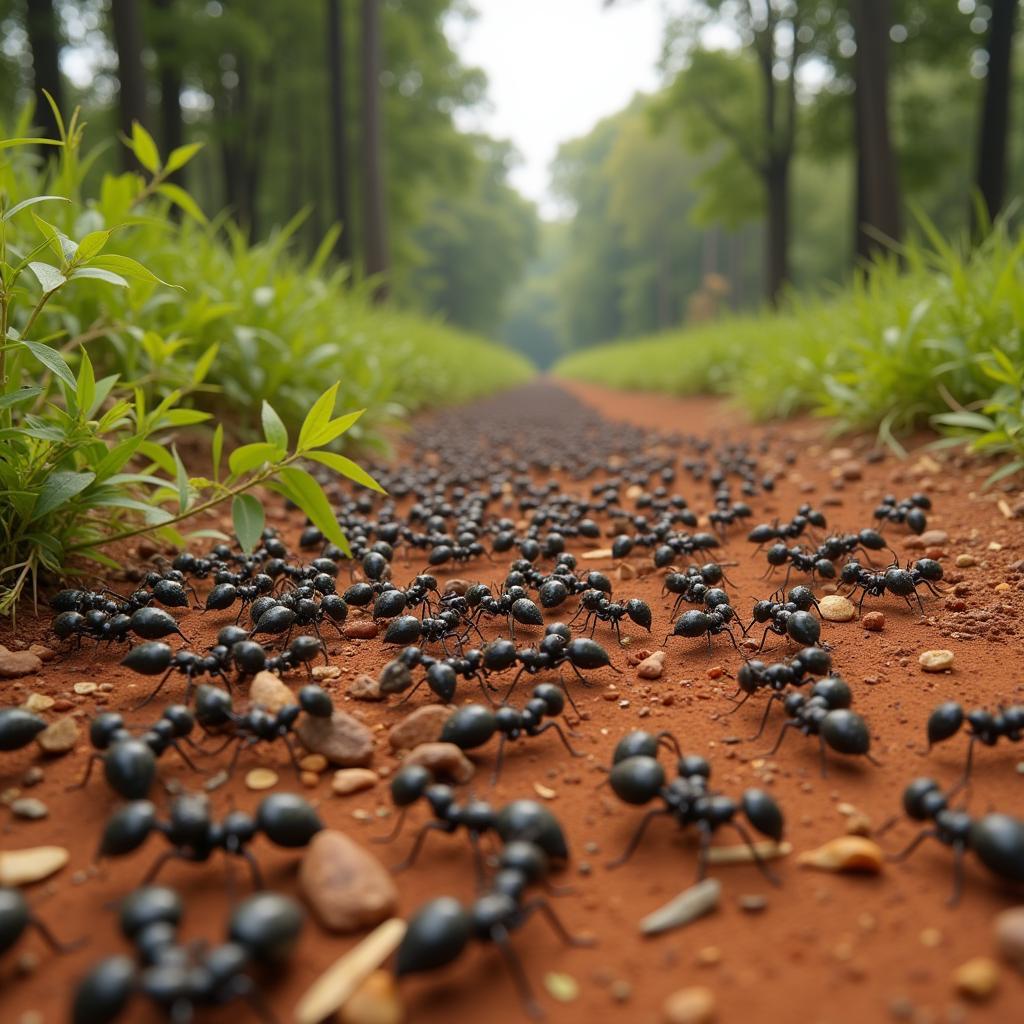 African Ant Colony on the March
African Ant Colony on the March
African Ants and Human Interaction: Understanding the Dynamics
Like many other creatures, African ants are drawn to food sources. Open garbage, leftover food, and even sugary drinks can attract ants, sometimes in large numbers. This natural foraging behavior, while inconvenient, is not an indication of aggression towards humans or an intent to harm.
Debunking the Myth: Why African Ants Don’t Eat Babies
Several factors debunk the myth of African ants eating babies:
- Size and Strength: While strong for their size, ants are simply too small to carry off a human baby.
- Diet and Predatory Behavior: African ants are primarily insectivores, meaning their diet consists mainly of insects. While they may occasionally target small vertebrates, human babies are far too large to be considered prey.
- Human Defenses: Humans, even infants, are far too large and well-protected to be considered vulnerable to an ant attack.
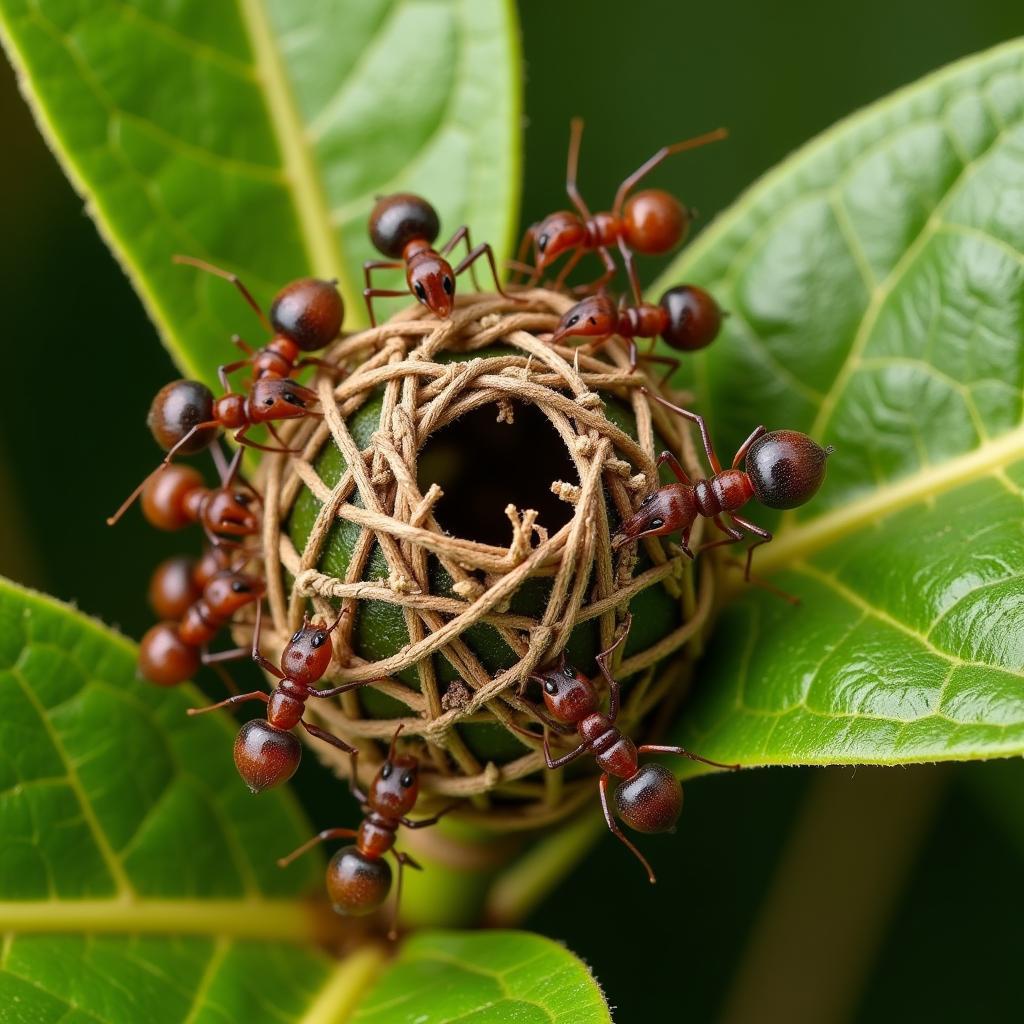 African Weaver Ants Tending to their Nest
African Weaver Ants Tending to their Nest
Conclusion: Appreciating African Ants for What They Are
The notion of “African ants eat baby” is a misconception fueled by sensationalism and a lack of understanding about these fascinating insects. While some species can be aggressive and deliver painful bites, it’s essential to remember that they play a vital role in their ecosystems. Understanding their behavior and respecting their place in the natural world allows us to appreciate the diversity and wonder of African wildlife without succumbing to unfounded fears. Remember, when it comes to information found online, especially regarding potentially alarming claims, critical thinking and reliable sources are your best allies.
FAQ:
1. Are driver ants dangerous to humans?
While driver ants can deliver painful bites, they are not inherently dangerous to humans. Their bites typically cause temporary discomfort and itching.
2. What do African ants eat?
African ants primarily feed on insects, other invertebrates, and occasionally small vertebrates.
3. Do African ants attack humans?
African ants are not known to attack humans unless provoked or if their nest is threatened.
4. What should I do if I encounter a colony of driver ants?
If you come across a driver ant colony, it’s best to observe them from a safe distance and avoid disturbing them.
5. Where can I find accurate information about African wildlife?
Reputable sources for information on African wildlife include conservation organizations, scientific journals, and educational institutions.
For further assistance or inquiries, please don’t hesitate to contact us:
Phone Number: +255768904061
Email: [email protected]
Address: Mbarali DC Mawindi, Kangaga, Tanzania.
We have a dedicated customer support team available 24/7.


